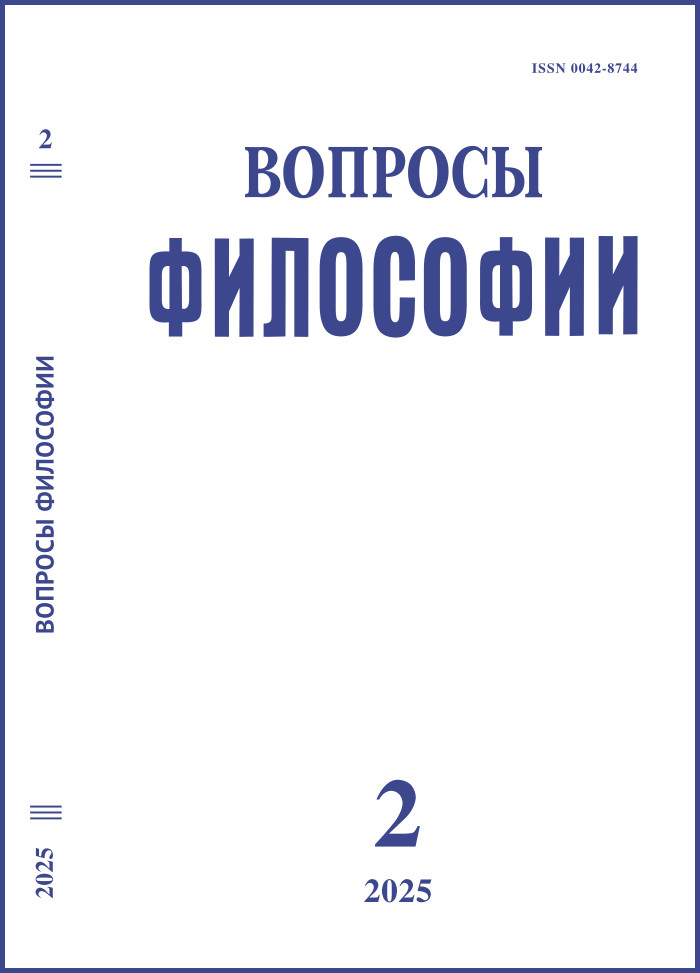Поворот к реляционности: постановка и истоки проблемы
DOI:
https://doi.org/10.21146/0042-8744-2025-2-128-137Ключевые слова:
реляционность, отношения, сущность, субстанция, метафизика, онтология, антропологияАннотация
В классической европейской метафизике и основанной на ней антропологии отдавалось предпочтение категории сущности (субстанции) перед
категорией отношения. В конце XIX – начале XX в. это положение резко изменилось в связи с произошедшим в философии «поворотом к реляционности». В результате признания за реляционностью конституирующей роли было переосмыслено само понятие бытия, того, что значит быть. Если прежде быть (быть реальным) означало быть субстанцией (субстанциальным), то после «поворота» быть в первую и главную очередь означает быть-в-отношениях (реляционным). Формирование субстанциального языка описания мира и человека началось в классической античности, ключевую роль в этом процессе сыграл Аристотель. На этом этапе отношения являются акцидентальными, не затрагивающими идентичности вещей. Онтология субстанции имела целый ряд следствий в мышлении о человеке, который представал как автономный, умопостигаемый, бесплотный, предзаданный и статичный. В XX в. подобный понятийный комплекс оказался непригодным для осмысления современного опыта. Более того, он породил целый спектр социально-политических ограничений.

